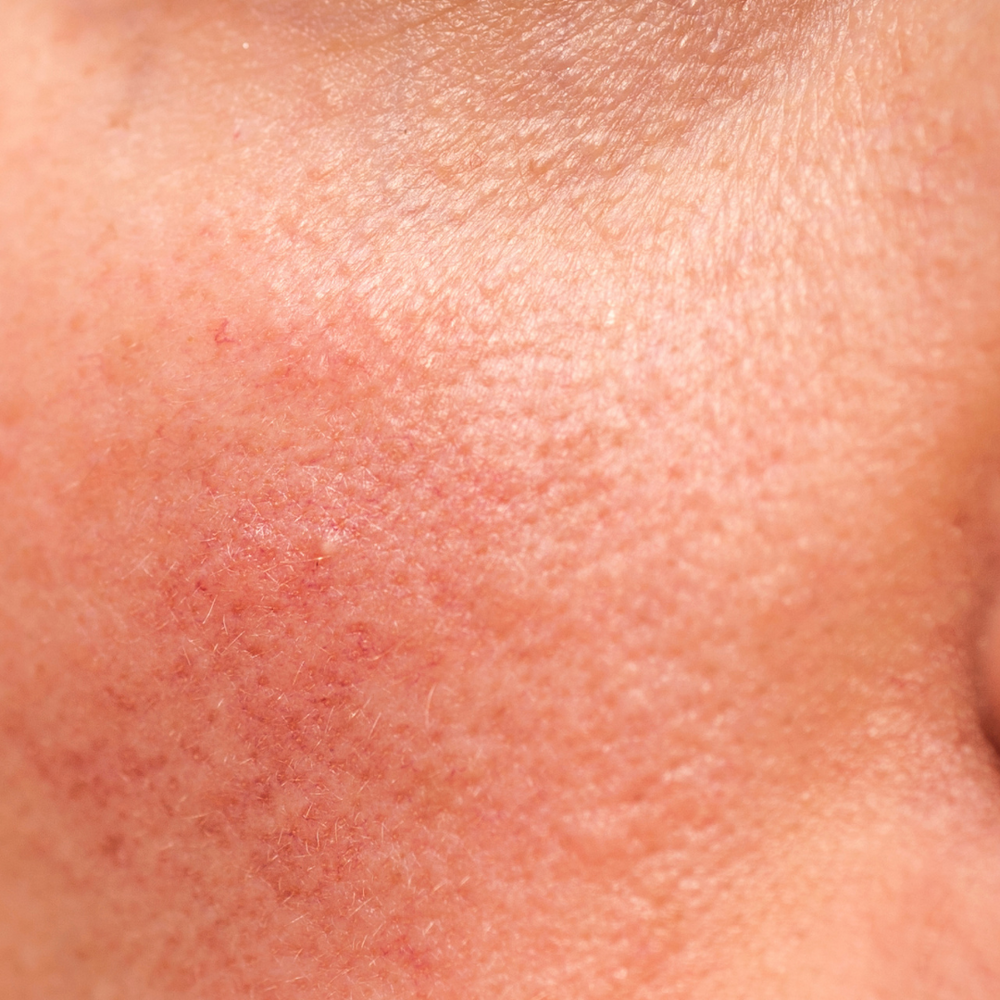Rosacea

What Is Rosacea?
Rosacea is a skin disease that causes redness and pimples on your nose, cheeks, chin, and forehead. The redness may come and go. People sometimes call rosacea “adult acne” because it can cause outbreaks that look like acne. It can also cause burning and soreness in the eyes and eyelids.
What Causes Rosacea?
Experts are not sure what causes rosacea. It tends to affect people who have fair skin or blush easily, and it seems to run in families.
Rosacea often flares when something causes the blood vessels in the face to expand, which causes redness. Things that cause a flare-up are called triggers. Common triggers are exercise, sun and wind exposure, hot weather, stress, spicy foods, alcohol, and hot baths
What Are The Symptoms?
A flushed face and pimples or bumps on or around the cheeks, nose, mouth, and forehead may be symptoms of rosacea. Sometimes the flushing or redness can last for days. Tiny red veins on the face that look like spiderwebs, burning or stinging facial skin, especially when applying lotions or medicines can also be symptoms.
Dry, red, irritated eyes are also a sign. The eyelids may look red and swollen, and vision may be blurry. If it is not treated, rosacea can cause serious eye problems.
How Is It Treated?
There is no cure, but with treatment, most people can control their symptoms and keep the disease from getting worse. Antibiotic creams or pills may be used to treat redness and pimples. If you use antibiotics, be patient, it can take a month or two before you start to see improvement. Stronger medicines, such as Accutane or Retin-A, may be prescribed if antibiotics don’t control your rosacea. Other treatments may also help your skin look better. These include microdermabrasion, or laser treatments.
How Can You Prevent Rosacea Flare-Ups?
Find your triggers. One of the most important things is to learn what triggers flare-ups and avoid them. It may help to keep a diary of what you eat, drink, and do on the days that the rosacea appears. Use sunscreen every day. Pick a sunscreen rated SPF 15 or higher that blocks ultraviolet light (UVA and UVB) and infrared rays. During winter, use a moisturizer to prevent dryness caused by cold and wind. Be gentle with your skin. Use skin care products for sensitive skin, and avoid any products that scratch or irritate your skin.
Products
View all

